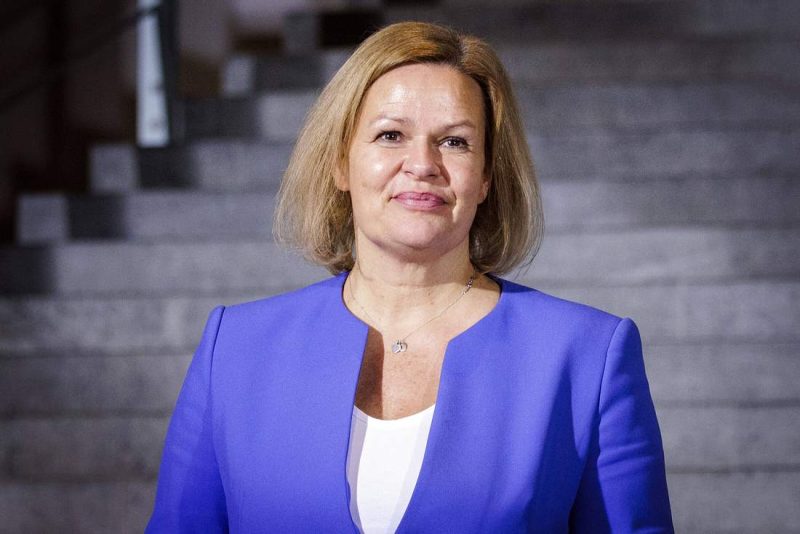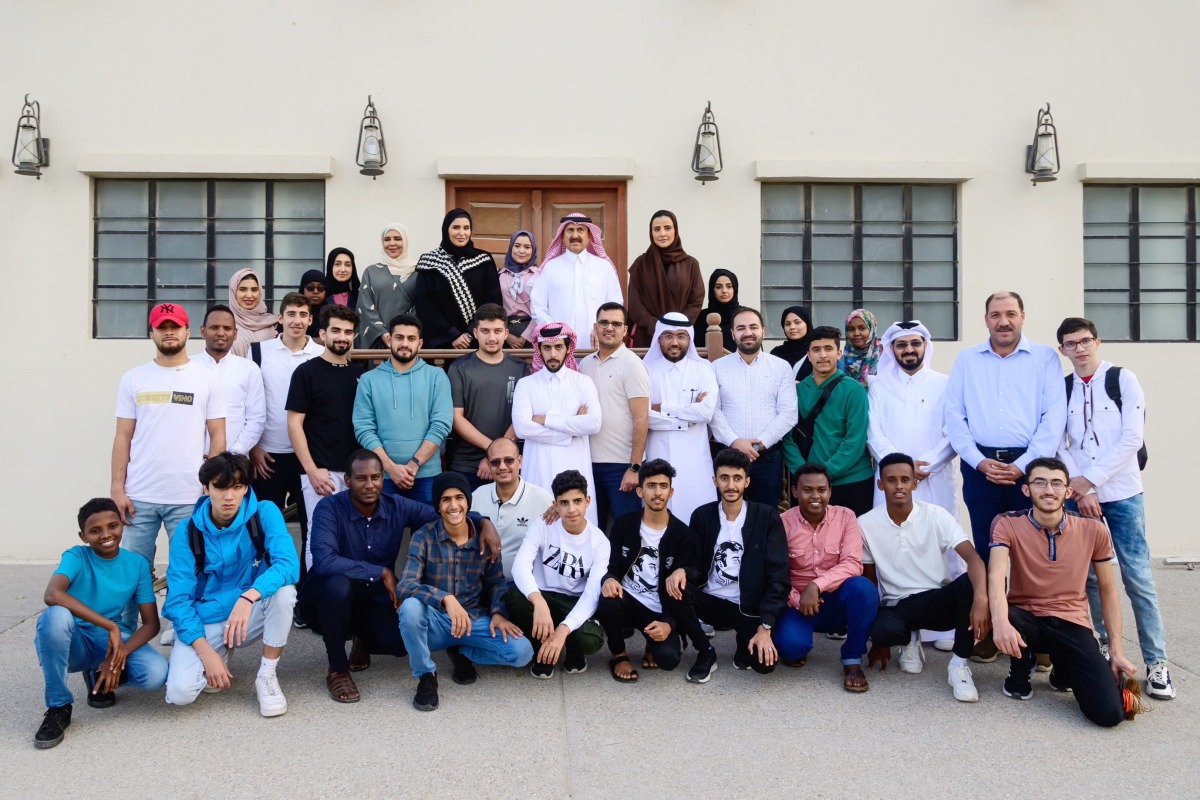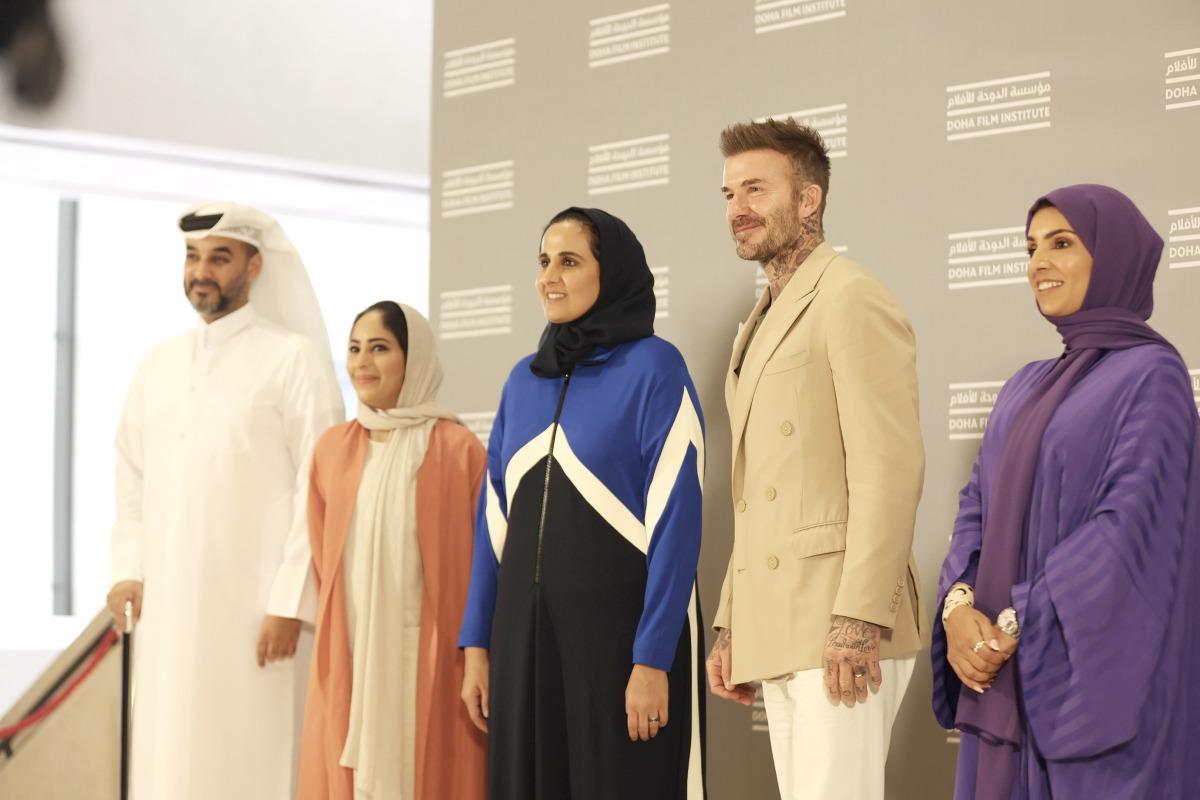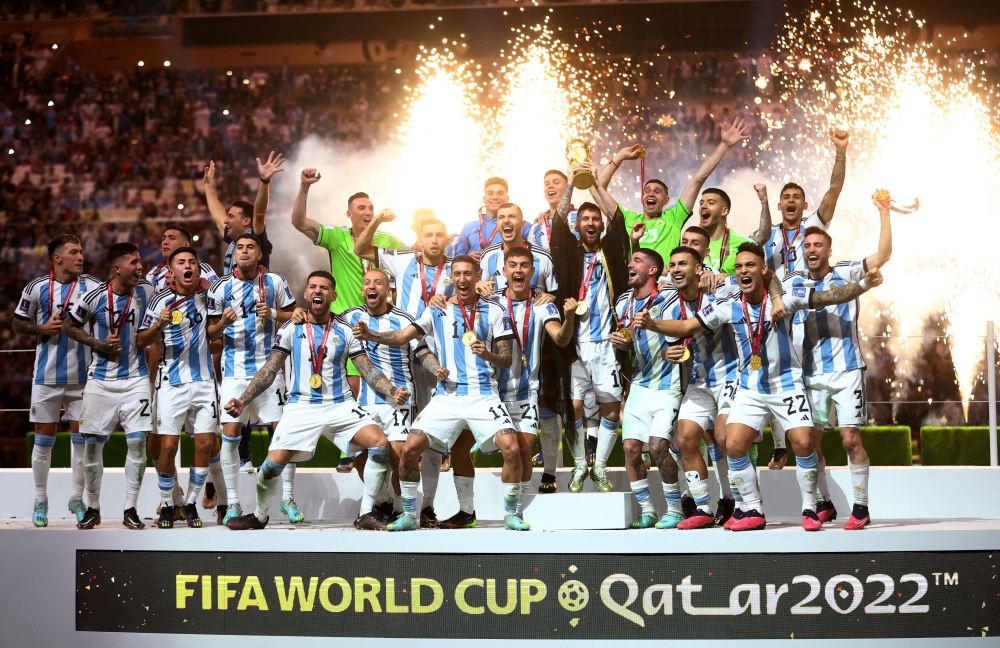During a visit to the Gulf state this week, the official asserted that remarks made by Germany’s interior minister that led to a diplomatic row between Doha and Berlin were “misinterpreted.”, Al Jazeera reported.
Nancy Faeser paid a two-day visit to the Qatari capital this week amid a feud that was sparked over her public criticism of Qatar’s hosting the 2022 FIFA World Cup.
On Tuesday, she met with Prime Minister and Interior Minister Sheikh Khalid bin Khalifa bin Abdulaziz Al Thani to confirm she would be in attendance for her team’s opening World Cup match in Qatar.
Faeser also praised Doha’s preparations for hosting the event as well as the extensive and long-lasting labour reforms it has put in place, state-run Qatar News Agency reported.
“It is important to support the country of Qatar in groundbreaking reforms,” Faeser said on Tuesday.
“That is why I have decided to continue to be part of the process and travel to the first match of the German team.”
However, the same minister last week had described Qatar’s hosting of the tournament as “very tricky” for the German government, saying “it would be better that tournaments are not awarded to such states.”
In response, Qatar’s foreign ministry summoned the German ambassador, while the Gulf Cooperation Council issued a statement to condemn the “violation of diplomatic norms, traditions and international laws.”
Faesar’s trip to Doha this week was set to place spotlight on “the human rights issues that are being discussed around the tournament, such as the protection of queer people from discrimination and persecution and the responsibility for migrant workers who built the World Cup stadiums,” according to a statement from the German Federal Ministry of the Interior, reports said.
Faeser said on Tuesday Sheikh Khalid had offered her a “guarantee of safety” for LGBTQ spectators during the competition.
“All people, no matter where they come from, who they love and what they believe in, must be safe at the World Cup,” she said.
Sheikh Khalid stressed that Qatar “welcomes all visitors during the World Cup”, as it sees the tournament as “an opportunity for the world to learn about Qatari culture.”
He also emphasised his confidence in tourists from around the world being respectful and understanding of Qatari customs and values.
Sheikh Khalid also made a point of addressing “misinformation about the situation of employment and human rights in Qatar, which contributed to the dissemination of a systematic misleading campaign” targeting Qatar.
The criticism by the German interior minister came just days after Qatar’s Amir Sheikh Tamim bin Hamad Al Thani slammed what he described as “ferocious” attacks against Qatar since it won the bid to host the World Cup.
The amir said that “no other host nation” has faced this level of “ferocious” criticism.
“Since we won the honour of hosting the World Cup, Qatar has faced an unprecedented campaign that no other host nation has received. And we had handled it at first in good faith while considering some of the criticism positive and beneficial,” Sheikh Tamim told the Shura Council in October.
Reforms since winning the bid to host the World Cup
Since winning the bid to host the World Cup in 2010, Qatar has found itself under the international spotlight, with waves of scrutiny from the west over the conditions of migrant workers and lack of adequate laws to protect them, prompting Doha to take lead in implementing changes.
Qatar became the first country in the region to achieve the abolition of the Kafala system in August 2020.
The change allows migrant workers to change jobs before the end of their contract without first having to obtain a ‘No Objection Certificate’ (NOC) from their employer, dismantling the controversial Kafala system completely and providing protection for workers in the country.
In the two years since these reforms were implemented, the ILO reported that the labour ministry of Qatar has authorised nearly 350,000 applications from migrant workers seeking to change occupations.
The law had previously allowed several workers to be exploited and caused an unequal power balance between workers and their employers, according to activists. However, despite the amendment of the law, some private companies reportedly continue to break the law.
The report further stated that many workers still encounter challenges, such as retaliation from their employers, while trying to leave their jobs and find new ones.
On 20 March 2021, the non-discriminatory minimum wage reform, which applies to all workers of all nationalities, in all sectors, including domestic workers, was announced by Qatar’s Ministry of Administrative Development, Labour and Social Affairs (MADLSA).
The move made Qatar the first country in the Gulf to adopt such law, which mandated that all employees get a minimum of QAR 1,000 ($275) a month in pay as well as a minimum of QAR 300 for food and QAR 500 for housing, unless their employer provides both.
ILO reported that since the new legislation was enacted, 280,000 employees have seen their incomes increase to the new minimum threshold, though this has been deemed inadequate by workers’ and rights groups, Al Jazeera reported.
In May last year, MADLSA introduced a unified platform for complaints and disputes, allowing all members of society to submit reports of violations by their employers.
Qatar has strived for increased engagement in its government in addition to alleviating the working conditions of foreign workers.
Additionally, Qatar had its first-ever legislative elections in October 2021 for the two-thirds of the advisory Shura Council, in which 30 of the Council’s 45 members were chosen by the general public.

















Leave a Reply